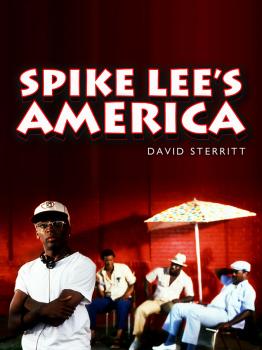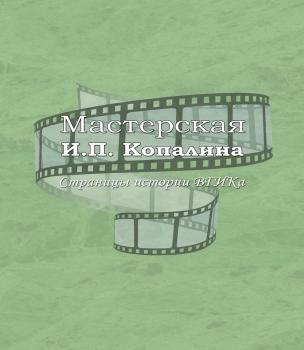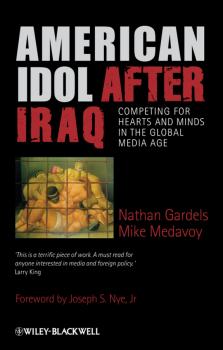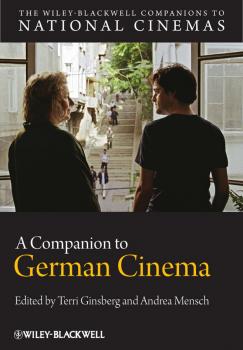Кинематограф, театр
Различные книги в жанре Кинематограф, театрA Companion to Spanish Cinema
A Companion to Spanish Cinema is a bold collection of newly commissioned essays written by top international scholars that thoroughly interrogates Spanish cinema from a variety of thematic, theoretical and historic perspectives. Presents an insightful and provocative collection of newly commissioned essays and original research by top international scholars from a variety of theoretical, disciplinary and geographical perspectives Offers a systematic historical, thematic, and theoretical approach to Spanish cinema, unique in the field Combines a thorough and insightful study of a wide spectrum of topics and issues with in-depth textual analysis of specific films Explores Spanish cinema’s cultural, artistic, industrial, theoretical and commercial contexts pre- and post-1975 and the notion of a “national” cinema Canonical directors and stars are examined alongside understudied directors, screenwriters, editors, and secondary actors Presents original research on image and sound; genre; non-fiction film; institutions, audiences and industry; and relations to other media, as well as a theoretically-driven section designed to stimulate innovative research
Spike Lee's America
Spike Lee has directed, written, produced, and acted in dozens of films that present an expansive, nuanced, proudly opinionated, and richly multifaceted portrait of American society. As the only African-American filmmaker ever to establish a world-class career, Lee has paid acute attention to the experiences of racial and ethnic minorities. But white men and women also play important roles in his movies, and his interest in class, race, and urban life hasn’t prevented his films from ranging over broad swaths of the American scene in stories as diverse as the audiences who view them. His defining trait is a willingness to raise hard questions about contemporary America without pretending to have easy answers; his pictures are designed to challenge and provoke us, not ease our minds or pacify our emotions. The opening words of his 1989 masterpiece Do the Right Thing present his core message in two emphatic syllables: “Wake up!” Spike Lee’s America is a vibrant and provocative engagement not only with the work of a great filmmaker, but also with American society and politics.
Классическая анимация. Нарисованное движение
Учебное пособие передаёт особое представление А. Петрова об анимационном пространстве и движении в нём объёмного персонажа. Требовательное отношение автора к умению молодого аниматора рисовать, глубоко вживаться в нарисованный характер коренным образом меняет отношение к анимации как к искусству, способному решать любые концептуальные, творческие и психологические задачи. В первой части «Механика и биомеханика» автор даёт понимание конструкции типажа, объёмно-пространственного видения, понимания перспективы (пространства). Внимательно разбирая цикличные движения человека и животных в фас, профиль, в три четверти, их ходьбу, бег, галоп, прыжок, бросок автор останавливается на специальных технологических приёмах: экспозиционных листах, панорамах, циклах,… Во второй части «Актёрские возможности» автор исследует основы и принципы актерского решения сцены, знакомит с классификацией жестов, выразительностью позы, мимики и артикуляции персонажа, говорит о необходимости понимать законы психологической реакции персонажа на обстоятельства действия. Отдельный раздел посвящен работе над музыкальными эпизодами и танцевальными сценами. В учебном пособии, предназначенном для студентов, занимающихся анимацией и компьютерной графикой, сложные задачи сочетаются с простотой изложения и богатством изобразительного материала.
Стереоскопический кинематограф
Книга ведущего специалиста в области стереоскопического кинематографа А.С. Мелкумова сочетает в себе как теоретические вопросы стереоскопии в кинематографе, так и практические конкретные рекомендации, касающиеся технологии производства стереофильмов и деятельности кинооператора на съемочной площадке. Данное издание рекомендовано не только как учебное пособие для обучения студентов-кинооператоров, но будет полезно для ознакомления режиссерам, художникам и продюсерам.
Мастерская И.П. Копалина. Страницы истории ВГИКа
В 1957 году во ВГИКе впервые состоялся набор в специализированную мастерскую режиссуры документального кино под руководством народного артиста СССР Ильи Петровича Копалина. В книге собраны материалы о создании и первых шагах становления этой мастерской, ее учеников. Книга рассчитана на всех любителей истории отечественного кинематографа.
American Idol After Iraq. Competing for Hearts and Minds in the Global Media Age
This dazzling little book explores the role of US media in foreign policy, not only at the present moment, but with an eye to the future. Written by a veteran Hollywood film executive and an internationally known columnist in foreign affairs Explains how American movies, TV shows, and pop music provide the images of America to the rest of the world, and the rest of the world to Americans Includes discussions of the cartoons of the Prophet Mohammed Danish daily newspapers, Tibetan monks censored out of Chinese TV news reports only to show up on You Tube, and the Vatican's assault on the Da Vinci Code movie Argues that Hollywood is a key player in the 'deep coalition' required to support a 'smart power' foreign policy and build a global cultural infrastructure that will make the world safe for interdependence
Cult Cinema. An Introduction
Cult Cinema: an Introduction presents the first in-depth academic examination of all aspects of the field of cult cinema, including audiences, genres, and theoretical perspectives. Represents the first exhaustive introduction to cult cinema Offers a scholarly treatment of a hotly contested topic at the center of current academic debate Covers audience reactions, aesthetics, genres, theories of cult cinema, as well as historical insights into the topic
A Companion to François Truffaut
The 34 essays of this collection by leading international scholars reassess Truffaut's impact on cinema as they locate the unique quality of his thematic obsessions and his remarkable narrative techniques. Almost 30 years after his death, we are presented with strikingly original perspectives on his background, influences, and importance.Bridges a gap in film scholarship with a series of 34 original essays by leading film scholars that assess the lasting impact of Truffaut’s work Provides striking new readings of individual films, and new perspectives on Truffaut’s background, influences, and importance Offers a wide choice of critical perspectives ranging from current reflections in film theories to articles applying methodologies that have recently been neglected or considered controversial Includes international viewpoints from a range of European countries, and from Japan, New Zealand, and Brazil Draws on Truffaut’s archives at the BiFI (Bibliotheque du film) in Paris Includes an extended interview with French filmmaker Arnaud Desplechin concerning Truffaut’s shifting stature in French film culture and his manner of thought and work as a director
A Companion to German Cinema
A Companion to German Cinema offers a wide-ranging collection of essays demonstrating state-of-play scholarship on German cinema at a time during which cinema studies as well as German cinema have once again begun to flourish. Offers a careful combination of theoretical rigor, conceptual accessibility, and intellectual inclusiveness Includes essays by well-known writers as well as up-and-coming scholars who take innovative critical approaches to both time-honored and emergent areas in the field, especially regarding race, gender, sexuality, and (trans)nationalism Distinctive for its contemporary relevance, reorienting the field to the global twenty-first century Fills critical gaps in the extant scholarship, opening the field onto new terrains of critical engagement
Dirty Discourse. Sex and Indecency in Broadcasting
Changes in society, the pluralistic nature of the citizens and the geographic breadth of America preclude a common definition of what is indecent, profane, or obscene. What may appear to be 'dirty discourse' to some may be considered to be laudable satire to others. In this fascinating book, renowned media scholars and authors, Robert Hilliard and Michael Keith, examine the history and nature of indecent program content in American radio. Examines the blue side of the airways with a first-ever analysis of the history and nature of off-color program content. Explores the treatment of once-forbidden topics in the electronic media, investigating the beliefs, attitudes and actions of those who present such material, those who condemn it, and those who defend it. Written from a social and cultural perspective, concentrates on the means of greatest distribution – radio, with its phenomenal growth of «shock jocks» and rap music lyrics. Provides coverage of television and the Internet, showing how and why broadcasting has evolved from the ribald antics of the Roaring 20's to today's streaming cybersex, contrasting the standards and actions of the FCC v. the First Amendment amidst the over-the-air and in-the-court battles of over-the-top radio. Illustrates political pressures and legal considerations, including Supreme Court decisions, and efforts to protect children from media smut.









